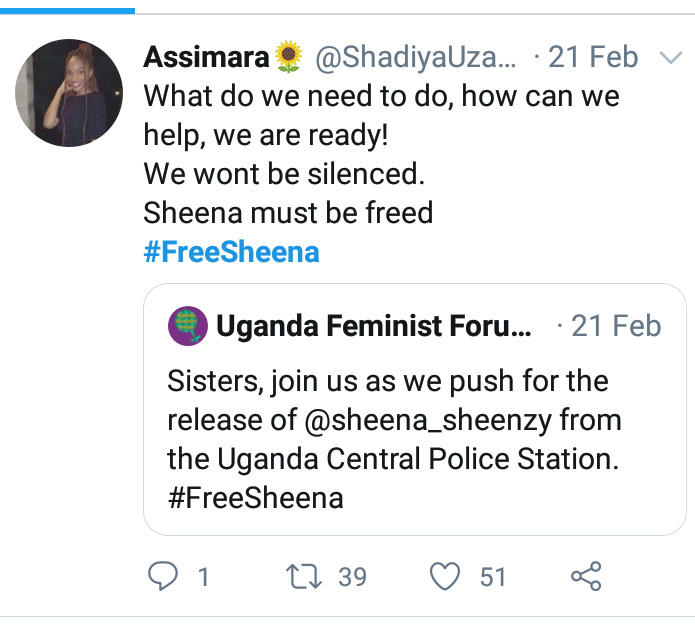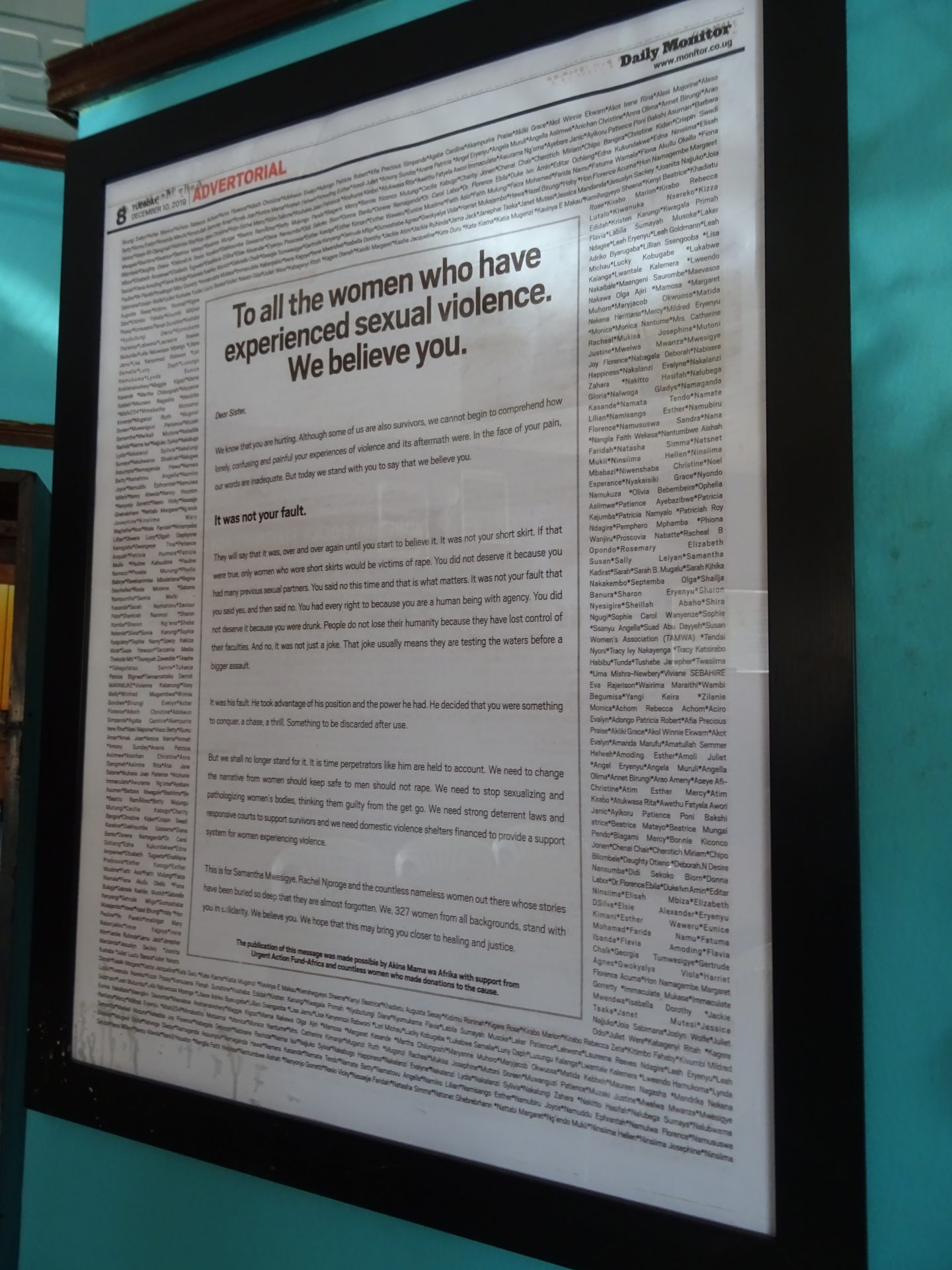The last section of this dissertation invites us to explore sisterhood from a perspective that places activism at the centre. To answer the question of 'why is the sisterhood acting as a primary-response mechanism in the context of Uganda?', I combine the views and experiences of different collaborators with the account of events and observations to elaborate on such a concept theoretically. From this perspective, the commitment to sisterhood becomes the source for feminists to come together and organise in collective action to respond to emerging issues affecting women's rights.
Drawn from the examples of the #MeToo movement in Uganda and the subsequent #FreeSheena campaign is the analysis of the use of social media to exercise and amplify the scope of their political agency. In particular, I explore the case of activism of #FreeSheena from my first-hand experience to offer a deeper understanding of such a phenomenon. To this purpose, I analyse WhatsApp and Twitter as the main tools to mobilise, organise, and engage with activism. The tendency of organising online to circumvent the constraints of conventional forms follows the current waves of feminist organising across the region and the world. This chapter outlines some of the reasons attributed to the emergence of this trend in the context of Uganda.
On the one hand, the case of #FreeSheena evidences the benefits of social media as a tool to inform, connect, and mobilise support at unprecedented speed and scales. Far from being exclusive, the digital is becoming the organising platform to coordinate and encourage offline actions, evidencing complementarity rather than substitution as the key to achieving effective results. This analysis would be incomplete without addressing the contribution of the discourse on sisterhood, which becomes crucial to such purposes. This case demonstrates how the discourse is used as a tool to awaken the political commitment of feminists to solidarity and involve them with others with the cause.
 #FreeSheena Tweets, 21st February 2020.
#FreeSheena Tweets, 21st February 2020.
On the other hand, the increasing trend of online activism is motivated by the limited possibilities of physical mobilisation and protest in the country. The last section analyses the instrumentalization of laws to impose silence on Ugandans, with a focus on the effects on women. It shows that such a political atmosphere restricts their capacity to challenge sexism and discrimination in their lives further. In this context, young Ugandans are developing new alliances and innovative ways to make their voices heard in the face of shared injustice. All in all, the case of #FreeSheena evidences a practice of sisterhood that embodies solidarity and collective action and pushes women's agency forward.


